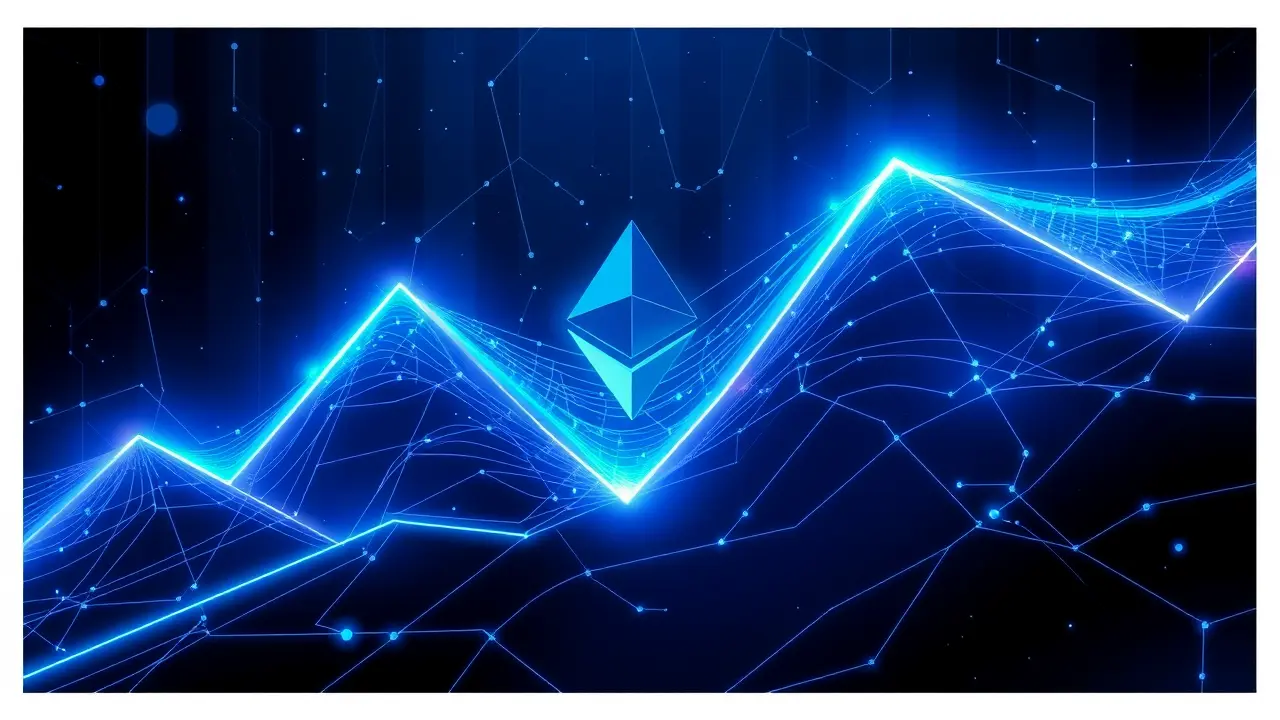Alibaba Subsidiary Drives Attention to its Ethereum Layer 2 Blockchain
The digital finance landscape is witnessing a significant convergence of traditional and decentralized worlds as Jovay Network, an Ethereum Layer 2 solution backed by the formidable Ant Digital—a subsidiary of the Alibaba conglomerate—forcefully reasserts its alignment with the Ethereum ecosystem, a strategic move that has sent ripples through investment circles and underscores the accelerating institutional march towards real-world asset (RWA) tokenization. While the social media proclamation caught many investors off-guard, the blueprint was laid bare back in April at the RWA Real Up conference in Dubai, where Jovay was unveiled not as another speculative crypto project but as 'financial-grade blockchain infrastructure,' a deliberate label signaling its ambition to serve as the robust, compliant, and scalable backbone for bridging the multi-trillion-dollar realm of traditional finance (TradFi) with the innovative, programmable frontier of Web3.This isn't merely about faster transactions or lower gas fees; it's a foundational shift. Jovay’s core proposition revolves around its modular Layer 2 infrastructure, a technological architecture designed for interoperability and specialization, allowing it to handle the complex legal, regulatory, and technical requirements of tokenizing everything from treasury bonds and real estate to intellectual property and carbon credits, assets that have historically been locked in illiquid, paper-based systems.The involvement of Ant Digital, a titan born from Alibaba’s financial arm with deep expertise in payment systems and digital banking services, is not incidental; it is a powerful validator of the RWA narrative, suggesting that the real endgame for blockchain may not be in creating new, purely digital economies but in digitizing and democratizing access to the existing global economy. This move places Jovay in direct competition with other institutional-focused L2s like Polygon’s Chain Development Kit (CDK) chains and the Axelar network, but with a distinct Web2-to-Web3 onboarding thesis that could appeal to conservative financial institutions still wary of the crypto-native wild west.The potential implications are staggering: by creating a trusted on-ramp, Jovay could unlock unprecedented liquidity for RWAs, potentially creating a market that, as Boston Consulting Group estimates, could balloon to $16 trillion by 2030. However, the path is fraught with challenges beyond technology, including navigating the patchwork of global financial regulations, establishing unambiguous legal frameworks for on-chain ownership, and overcoming the deep-seated cultural skepticism between the walled gardens of traditional finance and the open, permissionless ideals of DeFi.The success of such a venture hinges on its ability to assure institutional players of its security and compliance—areas where its 'financial-grade' branding and corporate backing are clear assets—while simultaneously earning the trust of the decentralized community that values censorship-resistance and self-sovereignty. As the lines between Wall Street and the blockchain continue to blur, Jovay’s aggressive positioning is a clear signal that the race to build the plumbing for the future of finance is intensifying, and the winners will likely be those who can most effectively marry the regulatory rigor of the old world with the disruptive efficiency of the new.
Latest News
The charts are whispering what the true believers have felt in their bones for weeks—Dogecoin is carving out a bottom.
17 hours ago5 comments
The Institute for Fiscal Studies has thrown a stark warning onto Rachel Reeves's desk, urging the Chancellor to confront a potential £22 billion shortfall in
17 hours ago3 comments
Alright, let's break down this absolute heater of a performance from the Chicago Blackhawks, because if you missed this one, you missed a party.
17 hours ago5 comments
The ice was hot last night in the NHL, folks, serving up a slate of games that felt less like a regular season Tuesday and more like a playoff preview with a
18 hours ago3 comments
The XRP chart is painting a tantalizing picture for those with the stomach to withstand the relentless pressure from crypto's leviathans.
18 hours ago4 comments
It’s in the small shifts, the quiet recalibrations of a Thursday morning, where the most meaningful change often takes root.
18 hours ago4 comments
In a move that sent ripples of quiet confidence through the crypto ecosystem, blockchain intelligence firms tracked a monumental treasury allocation from
18 hours ago4 comments
In a move that would have drawn a nod of approval from historical figures like Churchill, who understood the delicate balance of power within democratic
18 hours ago2 comments
CH
Chloe Miller123k7 hours ago
wait so is this just another layer 2 or is it actually doing something different tbh the $16 trillion number seems kinda wild
0
MA
Maya Thorne123k7 hours ago
ah yes another 'foundational shift' that will definitely change everything this time tbh
0
CH
Chloe Bennett123k14 hours ago
tbh all this financial infrastructure talk is a bit overwhelming for my brain rn, idk if it's a good thing or just more complication
0
CH
Chloe Bennett123k15 hours ago
wow this sounds so fancy and here i am still trying to figure out how to use my banking app without smh
0
JA
Jamie Lawson123k16 hours ago
ah yes the 'financial-grade' blockchain, because my bank is famously known for its love of decentralization and fun
0
